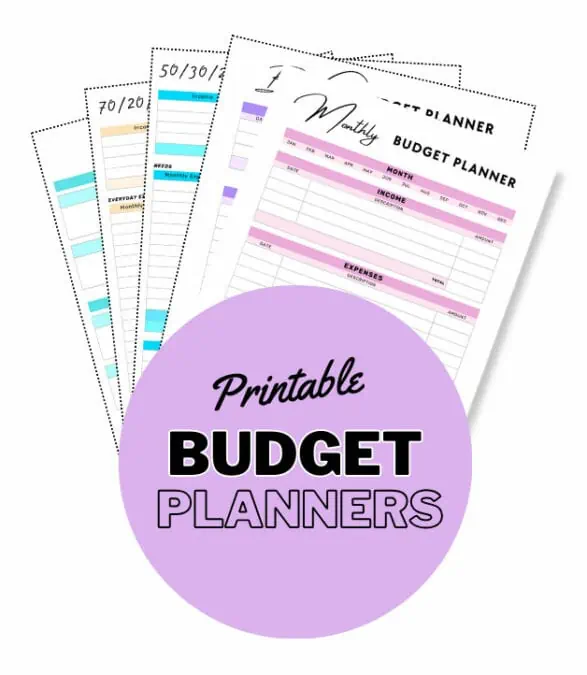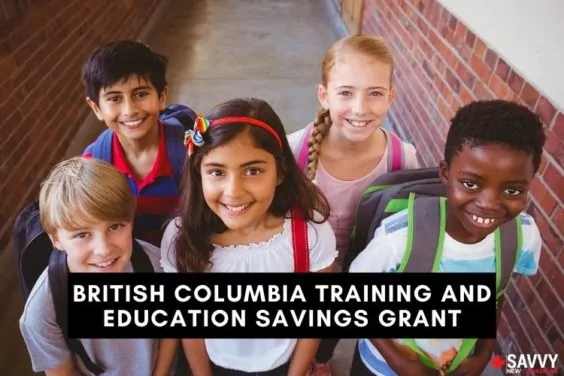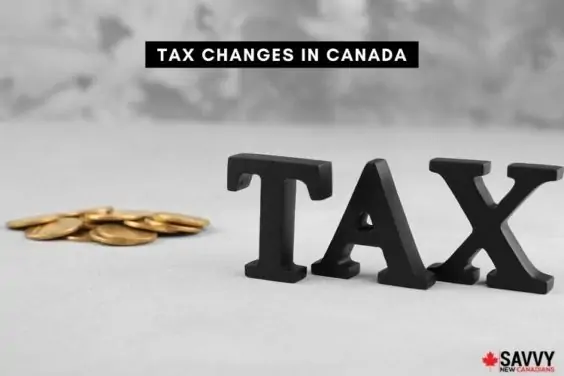Early in the new year is an excellent time to start planning and taking charge of your finances.
Waiting till the end of the year before implementing your savings and investing plans means allowing 12 months to go by without using compound interest to your advantage.
Financial Steps To Take in 2024
As you implement your New Year’s resolutions, this financial checklist will help you focus on some key financial steps you need to take.
1. Contribute to your TFSA
The Tax-Free Savings Account (TFSA) is one of the best vehicles we have in Canada for saving money.
For 2024, the TFSA contribution room increase to $7,000 ($6,500 for 2023). If you have been eligible to contribute to a TFSA since it was introduced in 2009, your total contribution room rises to $95,000.
A TFSA account is very flexible and can hold a variety of investments. You can use it to save for anything – wedding, home down payment, vacation, emergency fund, etc. You can withdraw your funds whenever you want and re-contribute the amount you withdrew in a future year.
No taxes are due on earnings generated by your account unless you run afoul of the rules put in place by the government.
The sooner you start contributing to your TFSA, the faster it will grow. Here are some of the best high-interest savings accounts you can use.
Related reading:
2. Contribute To Your RRSP
RRSP contributions are tax-deductible and will save you on taxes today while allowing you to grow your retirement pot.
For 2024, your RRSP contribution limit is 18% of your earned income, up to a maximum amount of $31,560. If you have not yet maxed out your contributions for the 2023 tax year, you can still do so until the end of the RRSP season, which is February 29, 2024.
Contributions made until the deadline can be used to claim a tax deduction for the 2023 or 2024 tax years. It can also be carried forward to future years.
If you turn 71 in 2024, you can make your last RRSP contribution before December 31, 2024. By the following year, you will be required to close your RRSP and do one or a combination of these: withdraw cash, convert to an RRIF, or purchase an annuity.
Your RRSP is not only for retirement. You can also withdraw tax-free funds to buy a house or return to school.
Related reading:
3. Contribute To An RESP
College tuition keeps rising, and a Registered Education Savings Plan (RESP) is one way to provide your kids an opportunity to obtain post-secondary education without debt.
Contributions you make to your kid’s RESP qualify for matching government grants at 20 cents for every $1 contribution, up to $500 in grant money per year (i.e. grant on $2,500 in annual contributions).
You can put up to a lifetime maximum of $50,000 per child in an RESP account that qualifies for a maximum Canada Education Savings Grant of $7,200. Low-income families may qualify for additional grant money (a-CESG and Canada Learning Bond).
It is advisable to start contributing to an RESP early so that compound interest can grow the account over time. Funds in an RESP grow tax-free.
Related reading:
Become a Budgeter and Improve Your Finances
Living paycheck to paycheck? Use these printable budget planners to get your finances back on track. They will help you understand how your income is spent and make it easier to allocate funds to pay off debt, save, and invest. These planners take the chore out of budgeting and make it so much fun!
Here’s what you get:
- 7 beautiful printables, including:
- Bi-weekly and monthly budget planners
- Financial goals trackers
- Debt snowball tracker
- 70/20/10 budget planner
- 50/30/20 budget planner
- Financial habits tracker
- Sample templates
Visit our shop to get your copies.

4. Pay Off Debt
It is never too early to start thinking about paying off debt, particularly high-interest debts like credit cards.
Create a budget that allows you to set aside specific amounts of money every month to settle your debt obligations.
Consider paying off credit card debt before saving/investing in a TFSA or RRSP. This is because interest rates on credit cards can reach 20% or more, exceeding any realistic returns you can expect on your investments.
Here are 10 strategies for paying off debt this year.
It may be easier to pay off debt when you increase your monthly income using side hustles or passive income strategies.
One other strategy is to spend less by utilizing these 100 money-saving tips.
Related: How To Check Your Credit Score For Free
5. Tax Filing For 2023
The tax-filing season will soon be upon us. For most Canadians, the deadline for filing your 2023 taxes is April 30, 2024. Self-employed individuals have until June 15, 2024.
There are many free options for filing your taxes in Canada, and you should do so early so you can put your refund money to work right away!
Make sure to utilize all the tax deductions you qualify for, and don’t leave money on the table.
Related reading:
6. Audit Your Investment Portfolio
If you forgot to audit your investment portfolio at the end of last year, it’s time to get on it. Two important things to note:
Re-Balancing
If you are a DIY investor and invested in ETFs or Index Funds, you should re-balance your portfolio 1-2 times a year. This ensures that your asset holdings align with your investment goals and risk tolerance.
Rebalancing may not be required if your portfolio comprises all-in-one ETFs.
Fees
Fees cut into your investment returns and should be minimized wherever possible. For example, if you are invested in mutual funds, you should consider the fees you are paying and be sure they are worth it.
Mutual funds are extremely expensive in Canada, and we pay some of the highest MERs in the developed world! Check if your comparative returns are worth justifying the fees you are paying.
Robo-advisors provide a lower-fee option for investors uncomfortable with managing their own portfolios or who cannot be bothered with the hassle of re-balancing. They can:
- Provide a customized portfolio that suits your investment goals, time horizon, and risk tolerance.
- Automatically rebalance your portfolio as required, re-invest your dividends, and more.
- Lower your fees by using low-cost ETFs and charging lower management fees.
Even if you manage your own portfolio using online discount brokerage accounts, you should still audit how much you are paying in fees. Many investors end up buying and selling too often and rack up trading commissions that dampen their overall returns.
In addition to fees on investment fees, you should aim to pay less in bank fees in general. You can easily open a free chequing account and stop paying this monthly bank fee as well!
Related reading
7. Consider Estate Planning
What happens to your beneficiaries if you die unexpectedly? Do you have a Will or life insurance in place?
Not everyone needs a Will or life insurance policy. However, if you have dependents, a Last Will and Testament can save them the hassle of settling your estate. Life insurance can ensure they are provided for financially.
Wills: If you have been delaying writing a Will due to the costs. You can now use online Will-making platforms to create your legal Will for cheap.
Options include LegalWills, Willful, and Epilogue Wills. All three offer our readers a discount using the SAVVY20 promo code.
Life Insurance: Easily compare quotes across life insurance companies and save on your premiums. One life insurance comparison platform I recommend is PolicyMe.
Closing Thoughts
When you start the new year by charting your financial goals and how you aim to reach them, chances are that when you do your end-of-year financial review, you will have met most (if not all) of them.
Related:





Thanks for the checklist. Taxes and rebalancing in progress, everything else done!
@Jim: Awesome – thanks for stopping by!
Great article Enoch. Thank you for the reminders.
I am on the journey of clearing my debt and becoming sound, financially. It was good to read to pay credit cards before I wish to start TFSA/ RRSP. I was wondering if you have any notes/ blogs on self directed investing? I have never done investing before and I hope its not rocket science to start to learn now.
I will wait for our reply. Thank you for your time and a great day to you!
Hi Deesha: Thanks for stopping by! The following posts may be helpful:
Index Investing: https://www.savvynewcanadians.com/introduction-index-investing-diy-investor/
Index Investing options: https://www.savvynewcanadians.com/index-fund-options-new-investors-canada/
Robo-Advisors: https://www.savvynewcanadians.com/choose-robo-advisor-meets-investing-needs/
Robo-Advisors: https://www.savvynewcanadians.com/guide-to-robo-advisors-canada-and-comparison/
Self-directed investing: https://www.savvynewcanadians.com/discount-brokerages-commission-free-etfs-canada/
Cheers!